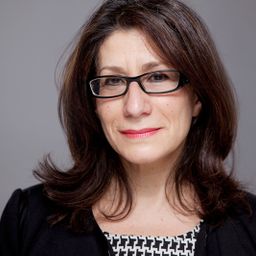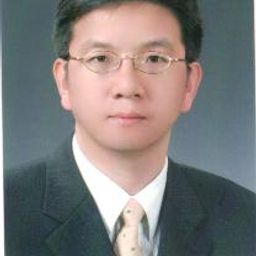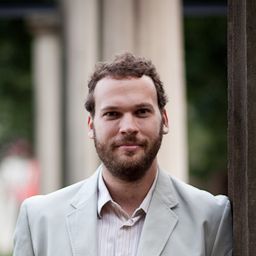At the UNESCO Feast: Foodways across Global Heritage Governance II

My Session Status
Since food and foodways are powerful references for self-representation and identity-making, the heritage vocabulary has long been associated with the promotion of local products and culinary preparations. Festivals and tourism contribute to establishing culinary districts and boosting local economies. As food consumption is intrinsically associated with market principles, economic considerations are interlinked with the food-related heritage project more than with other heritage domains. The particular stakes underpinning this field have led to the establishment of international and interregional norms governing intellectual property rights. The coordination of these instruments with international and regional norms protecting intangible cultural heritage is shaping new heritage regimes for agro-biological diversity and foodways.
In exploring the recent heritage legitimacy afforded to food-related cultural expressions by the UNESCO Convention for the safeguarding of the intangible cultural heritage, and in analysing the challenges and controversies shaping this field at the international level, this session will contribute to debate over the main theme of the conference, namely “What does heritage change?” The ultimate aim of this session, however, is to investigate how the international heritage apparatus changes existing categories, principles and objectives in national heritage policies and local heritage agendas.
We invite contributions that will closely analyse how the interaction of different levels of regulations as well as of institutional and sociocultural priorities shape global heritage policies with outcomes often unforeseen by international policy-makers. Presentations focusing on Europe, Asia and Latin America are particularly welcome. What is at stake in foodways heritage promotion in these regions? What are the different priorities in terms of sustainable development, commercial interests and protection of intellectual property rights? And what is the role of minorities and indigenous people in the establishment of measures of protection of traditional knowledge and agro-food resources in these regions?
Based on a resolute interdisciplinary approach, this session brings together legal scholars and anthropologists to investigate the “creative frictions” emerging from the encounter between the international governmentality apparatus, existing juridical regulations and social uses of heritage. The combination of ethnographic and legal exploration of complex world governance aims at shedding light on the interactions of particular actor networks across multiple scales, thus allowing our analysis to go beyond the simplistic opposition between “global norm” and “local reactions.”
We invite in particular contributions on the effects of UNESCO listing of food-related elements or on the preparation of food-related nominations.
Sub Sessions
“Washoku, the traditional dietary cultures of the Japanese” was inscribed on UNESCO’s Representative List of the Intangible Heritage of Humanity in December 2013. Although the term washoku (literally, “Japanese food”) has been used for a long time in Japan to refer to traditional and local (or localized) Japanese food, the UNESCO inscription marked the formal introduction of the concept on the global culinary stage. Washoku has never been easy to define, and the application for UN...
UNESCO’s recent recognition of specific cuisines and culinary forms as cultural patrimony has impacts far beyond those foodways that have been officially recognized; there has been a larger shift in how cuisines are understood and commodified, as bodies of knowledge and practice that are both coherent and creative. Andean (highland Bolivian and Peruvian) cuisine, defined broadly, is one location where we can see these shifts. Andean foodways are currently undergoing a moment of internation...
Peruvian cuisine is the fusion of culinary traditions of ancient Peru with Spanish cuisine, which is strongly influenced by the 762 years of Moorish presence in the Iberian Peninsula, and important contribution of culinary customs brought from the Atlantic coast of Sub-Saharan Africa by slaves. Thereafter, the mixing was influenced by the culinary uses and traditions of French chefs who fled the Revolution in their country to settle in Peru. Equally crucial was the influence of immigration...
À partir d’une proposition de caractérisation des patrimoines alimentaires inscrits sur les listes du patrimoine culturel immatériel de l’UNESCO depuis 2009, nous nous interrogerons sur les enjeux du label UNESCO à travers les divers modes d’exploitations identitaires qu’il offre pour le champ de l’alimentation. Au delà des enjeux de sauvegarde et de transmission affichés pour les communautés dites « détentrices », nous nous attacherons particulièrement aux enjeux économiques et commerciau...
Traditional foods, including their recipes, and foodways can be protected by the Cultural Heritage Protection Act, the Convention for the Safeguarding of the Intangible Cultural Heritage, and several laws related to intangible properties such as the Act on Unfair Competition Prevention and Trade Secret Protection, Trademark Act, the Act on Quality Control of Agricultural and Fishery Products, and Copyright Act. This paper will discuss protecting foods and foodways as intangible properties ...
This paper will focus on the potentials and pitfalls of safeguarding culinary practices as intangible cultural heritage. More specifically, by looking at examples around food heritage in Latin America, this paper will look at how different regimes about food security, biodiversity, intellectual property rights, indigenous rights and cultural heritage overlap on one fairly discreet manifestation of heritage. The main focus of the paper is Traditional Mexican Cuisine, on the Representative L...







